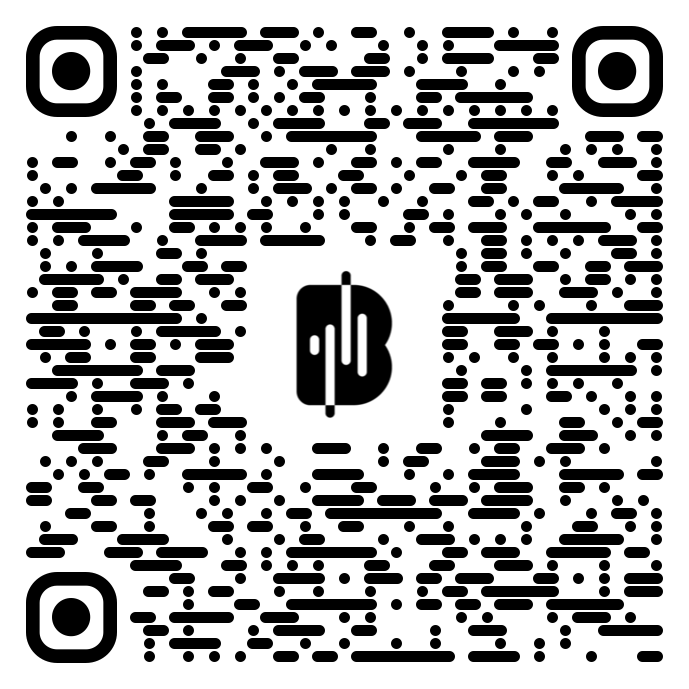English can be a tricky language to master, especially when it comes to pronunciation. For instance, you might have noticed that ‘though’ and ‘cough’ look almost exactly the same, but sound completely different.
English pronunciation is a common cause of frustration, but the good news is that there are reliable rules you can learn to make practicing English more logical and enjoyable. Speaking of practicing, here's a pro trip: after you read this article, start a 7-day free trial of BoldVoice to apply everything you've learned and get instant feedback on your speech.
But for now, let's briefly explore the history of English pronunciation and then equip you with essential spelling and stress-based rules to level up your language skills.
Brief History of English Pronunciation The diversity of pronunciation in the English language can be traced back to its rich history. Over the centuries, English has evolved through a mix of Latin, Romance, Old English, and Germanic influences.
This means that the modern English we speak today consists of eclectic rules and variations of patterns stemming from these other languages, creating the complexity that might seem contradictory at times.
For instance, many English words such as 'celebration' or 'information' reflect the influence of Latin phonetics. The '-tion' suffix, pronounced as 'shun,' comes from Latin.
On the other hand, words like 'sky' and 'skin' reflect the influence of Scandinavian languages. The 'sk' combination comes from Old Norse, representing the legacy of the Viking invasion and the incorporation of their language into English.
It’s worth noticing and appreciating this unique ancestry which has resulted in the modern English we use today, it it lays the basis for America's standard, unmarked accent - the General American accent . Now, we can get into the rules!
First, spelling rules. English spelling might seem like a mystery at times, but it all comes down to recognizing patterns. Notice and learn these essential spelling-based rules and soon enough, English pronunciation will be a breeze.
1. Short Words Have Short Vowel Sounds When a word is short, generally so is its vowel sound. For example, "cat" and "bit" follow this rule, with the shorter 'AA' and 'IH' sounds whereas "sophisticated" and "psychiatry" feature the longer 'EY' and 'ai' vowels.
Vowel sounds are tricky. For a complete guide to English vowel sounds, take a look here .
2. Two Consecutive Vowels Produce a Long Vowel Sound When two vowels are neighbors, they usually create a long vowel sound. Think of 'pain' and 'feet' – both 'ai' and 'ee' produce long vowel sounds.
Take your free accent assessment Get to know your pronunciation level and get 7 days of lessons for free on the BoldVoice app.
Start Free Trial
3. Double Consonants Shorten the Vowel Before Them Double consonants - two of the same consonants directly beside one another in a word - tend to shorten the vowel sound that precedes. If we compare ‘later’ and ‘latter,’ for example, ‘later’ with a single ‘t’ extends the ‘a’ sound that comes before it ('EY'), while ‘latter’ uses the short pronunciation of the ‘a’ vowel ('AA').
4. Double Consonants Are Pronounced as a Single Letter When you spot two consonants right next to each other, or a double consonant, you'll need to pronounce them as a single sound. This is unlike some other languages, in which doubled letters require a different pronunciation. But in words like ‘committee’ and ‘embarrass,’ you don’t need to elongate the double consonants.
5. Double ‘T’ Is Pronounced as ‘D’ For double consonant words that use a double ‘t,’ make sure to pronounce it like a ‘d.’ For example, the words ‘better’ and ‘bitter’ should be pronounced like ‘bedder’ and ‘bidder.’
Try it yourself with these examples, making sure to pronounce the 'tt' as 'd’!
6. Final ‘E’ Is Silent This one is simple—when ‘e’ is at the end of a word, it is silent. For instance, in 'cake,’ ‘hope,’ and ‘apple,’ the ‘e’ is not pronounced.
This final ‘e’ impacts the way that the rest of the word is pronounced (compare the words ‘mad’ and ‘made,’ for instance), but the ‘e’ itself is not pronounced.
For speakers whose native language does pronounce that final 'e,' this can be particularly tricky to implement, which is why the BoldVoice app allows users to practice specific words to target those more challenging aspects of American English pronunciation. For instance, you could use the app to practice the word 'hope' and receive immediate feedback on your pronunciation.
7. ‘C’ Is Pronounced as ‘S’ When Preceding ‘I,’ ‘E,’ or ‘Y’ In words like 'city' and 'cent,' 'c' takes on a soft 's' sound before the letters 'i,' 'e,' or 'y.' You can compare this to words like ‘care,’ ‘copper,’ or ‘creative,’ which feature a hard ‘c.’
This rule applies when the 'c' appears in the middle of the word too, like in the word 'incentive.' For a deeper dive on how to pronounce the word 'incentive' and other challenging professional vocabulary, take a look at our list of 50 essential sales terms in English .
8. ‘-tion’ Produces a ‘SH’ Sound The ‘t’ in the suffix '-tion' in words like 'station' and 'celebration' is pronounced as 'SH' As a result, the word ‘station’ is pronounced ‘stay-shun.’
9. Silent ‘G,’ ‘K,’ and ‘P’ When ‘g,’ ‘k,’ and 'p' are followed by the letter ‘n,’ such as in the words 'gnome,' 'knight,' or 'pneumonia,' they are silent. Simply pretend that these words start with an ‘n’ and you’ll pronounce them correctly.
10. Plural ‘S’ Is Pronounced as ‘Z’ When forming plurals with 's' at the end of a word, note that it often sounds like 'z’ rather than a standard ‘s.’' For example in the word ‘slugs,’ the first ‘s’ is pronounced as a clean ‘s’ while the second ‘s’ - the plural ‘s’ - is pronounced more like a ‘z,’ as if it were spelled ‘slugz.’
Check out this short demonstration from BoldVoice's Coach Eliza Simpson:
VIDEO
11. ‘S’ Between Vowels is Pronounced as ‘Z’ The same occurs when the letter ‘s’ is situated between two vowels. In words like ‘rose’ or ‘laser’ for example, the ‘s’ takes on a ‘z’ sound and is pronounced like ‘roze’ and ‘lazer.’
12. Various ‘X’ Pronunciations When the letter ‘x’ comes before an unstressed syllable (or it's the last letter at the end of a word), it is pronounced as ‘ks.’ Think of the words 'box' (boks) or 'ax’ (aks).
In words like 'exact' and 'exaggerate,' however, where the ‘x’ comes before a stressed syllable, it is pronounced as 'gz' to produce ‘egzact’ and ‘egzaggerate.’
The least common of the ‘x’ pronunciation rules, ‘x’ is sometimes pronounced as a ‘z’ sound when it’s the first letter of a word. Some common examples include 'Xerox' and 'xylophone.’
Struggling with your 'x' pronunciations? Download the BoldVoice app and begin your free trial to practice those 'x' sounds and receive immediate feedback on your pronunciation.
13. Various ‘Y’ Pronunciations In words like 'easy' and ‘calmly,' the letter ‘y’ produces a long 'e' sound. This pronunciation is common for adverbs and words that end in ‘y.’
'Y' can also mimic 'ai' in monosyllabic words such as ‘buy’ and 'cry.'
In some words where ‘y' occurs in the middle of a syllable, it can sound like a short 'i,' as in 'symbol' and 'system.'
14. ‘AY’ Spelling Is Pronounced as 'EY' When an ‘a’ precedes a ‘y,’ such as in words like 'say' and 'play,’ the ‘ay’ produces the diphthong 'EY.' Review the physical movements of this sound in the video below.
VIDEO
15. Various ‘Ng’ Pronunciations 'Ng' can be pronounced as a single merged sound such as in 'sing,’ but there are also words that require you to pronounce both distinct letters, like in ‘hunger’ and ‘language.’
16. Various Final ‘D’ Pronunciations The letter 'd' at the end of a word can be pronounced in one of three ways. It is pronounced either as 'd' (e.g., 'good'), 't' (e.g., 'liked'), or ‘id’ (e.g., fitted).
17. Silent ‘H’ Some words like 'hour' and 'honor' have a silent 'h.' When an ‘h’ is silent, it typically precedes the letter ‘o’ - but be careful. Not all words with this spelling feature a silent ‘h.’ Some, like the word ‘hospital,’ require pronunciation of the letter ‘h.’
18. Clear ‘L’ vs Dark ‘L’ Pronunciation When ‘l’ occurs at the start of a word or syllable, it’s pronounced as a clear ‘l,’ with the sound formed at the front of the mouth.
When ‘l’ is positioned at the end of a syllable, however, it takes on the dark ‘l’ sound. This is formed further back in the mouth. Compare the words ‘loop,’ which features a clear ‘l,’ and ‘pool’ with a dark ‘l.’ It’s subtle, but they’re different!
19. ‘ould’ Is Pronounced with a Schwa Sound Don’t let the spelling here throw you off. The vowel sound in words like 'should' and 'could' is pronounced as a schwa, liken an ‘ud’ rather than the 'OO' sound. Review a close-up of the schwa sound being made in the video below.
VIDEO
The schwa sound appears constantly in spoken English, and yet it remains enigmatic to non-native speakers due to its complicated (yet unspoken) rules. Check out our complete schwa pronunciation guide and master the schwa sound like never before!
20. ‘ought’ Is Pronounced as ‘ot’ Words like 'bought' and ‘fought’ sound like ‘bot’ and ‘fot.’
21. ‘oup’ Is Pronounced with an 'OO' Sound The 'oup' in words like 'group' and 'soup' produces an 'OO' sound, rhyming with ‘stoop.’ Review this sound being made in the demonstration below.
VIDEO
22. French Pronunciation of ‘S,’ ‘Z,’ and ‘G’ Remember when we said that modern English is partly a product of Romance language influence? Channel your inner French: in some words, 's,' 'z,' and 'g' are pronounced like their French counterparts.
In the words 'genre' and ‘vision,’ for example, the ‘g’ and the ‘s’ respectively are pronounced with a ‘j’ sound, as they would be in French.
There is no standard rule for when to use this altered pronunciation, so it’s important to take note of these specific words when you encounter them. With enough exposure and practice, these pronunciation rules and exceptions will become second nature!
While French speakers likely will have no issue with this particular English pronunciation rule, other sounds will be more challenging. In fact, check out this list of the 25 most difficult English words for French speakers if you're looking to test yourself!
23. ‘C’ Followed by ‘ei’ Produces an 'EE' Sound In words like 'receive' and 'ceiling' where the ‘ei' comes after ‘c’ in the stressed syllable, it creates an 'EE' sound.
If you work in a customer support role, for instance, you might find yourself saying "We have received your request" on a daily - if not hourly - basis. To vary your professional repertoire, check out our list of 30 impactful customer service phrases in English .
24. Silent 'P' Before 'S' If a 'p' comes before an 's' at the start of a word, it's silent. You can just pretend the word begins with the 's.' You can find examples of this rule in words like 'psychology,' 'psychic,' 'psalm,' and 'pseudo.'
These pronunciation rules can be tricky, and it can be hard to tell if you're doing it right. Download the BoldVoice app to practice and get immediate feedback on your pronunciation with AI!
Take your free accent assessment Get to know your pronunciation level and get 7 days of lessons for free on the BoldVoice app.
Start Free Trial
25. ‘ook’ Is Pronounced as the 'U' Sound When a word has a double ‘o’ followed by a ‘k,’ as in 'book' and 'look,’ the vowel should be pronounced as an 'U' rather than a 'OO' sound.
26. Various ‘ough’ Pronunciations The combination 'ough' can be pronounced as ‘off’ as in ‘cough,’ but also with a 'OO' sound, as in ‘through.’ This rule also takes memorization and time to learn, so be on the lookout for the various ‘ough’ words and note their pronunciation.
27. Various ‘G’ Pronunciations 'G' can be pronounced either softly, like 'giant,' or with a hard 'g,' like 'go.'
28. ‘R’-Controlled Vowels Certain vowel sounds are influenced by the 'r' sound, creating unique pronunciations. For example, say the words 'stellar,' ‘doctor,' and ‘bird’ out loud.
Do you notice that each of the vowel + ‘r’ combinations sound slightly different? Keep in mind that if an ‘r’ comes after a vowel, it can affect how you pronounce the vowel. Check out this video about how to make the 'ER' sound that can come up when a vowel's before a 'r.'
VIDEO
29. ‘-ation’ is Pronounced as 'EY' Words ending in '-ation' often produce an 'EY' sound. The words 'nation' and 'station’ are therefore pronounced ‘nay-shun’ and ‘stay-shun.’
Take the word 'conversation,' for example. Watch as BoldVoice coach Eliza demonstrates and explains the pronunciation of the word 'conversation':
VIDEO
For more access to a whole library of helpful pronunciation videos like this one, download the BoldVoice app !
This rule applies across the board, even with more complex words like 'adjudication' and 'arbitration.' To further expand your legal vocabulary, explore these 30 most common words used in law .
30. The Rhotic 'R' In many varieties of American English, the letter 'r' is pronounced clearly and distinctly at the end of words and syllables. This is known as a "rhotic" pronunciation.
For example, in words like "car," "far," and "hard," the 'r' sound is fully articulated. This is in contrast to some other English dialects, like British English, where the 'r' is often not pronounced at the end of syllables.
The American 'r' is a challenge for many non-native speakers, so we thought it warrants its own guide . Check it out!
31. Silent 'W' Some words feature a silent 'w,' especially when it appears before the letter 'r,' such as in "wrist" and "wrestle."
Now, let's focus on word stress. Understanding stress rules and mastering intonation is crucial to sounding fluent and avoiding awkward speech, as it affects intonation. Mastering stress rules will help you maximize your English pronunciation accuracy. Here are some key stress-based rules.
32. One Syllable Words Stress the first (and only) syllable of these types of words, like 'bat' or 'spa.'
33. Two Syllable Words Generally two-syllable nouns, adjectives, and adverbs stress the first syllable, while two-syllable verbs stress the second syllable.
For instance, 'rebel' (noun) is pronounced ‘REbel,’ and 'rebel' (verb) is pronounced ‘reBEL.’
34. Three Syllable Words Stress can be placed on the first, second, or third syllable, depending on how the word ends.
Stress the first syllable on words ending with -er, -or, and -y (e.g., ‘fastener,’ ‘visitor,’ and ‘happily’).
Stress the second syllable on words ending with -tion, -sion, -ic, and -al (e.g., 'intention,' ‘diversion,’ 'terrific,' and ‘abysmal’).
Stress the third syllable on words ending with -ee, -eer, -ese, and -ette (e.g., 'referee,' ‘volunteer,’ 'Japanese,' and ‘pirouette’).
35. Four Syllable Words Stress can be placed on the second or third syllable of a four syllable word, depending on how the word ends.
Stress the second syllable on words ending with -cy, -ty, -phy, -gy, and -al (e.g., ‘diplomacy,’ ‘disparity,’ ‘philosophy,’ 'biology,' and ‘fantastical’).
Stress the third syllable on words ending with -tion, -sion, and -ic (e.g., ‘elocution,’ ‘indecision,’ and ‘mathematic’).
How to Learn These English Pronunciation Rules We’ve given you a lot of information to keep in mind while you’re speaking—what’s the best way to learn these rules and commit them to memory? Of course, fully grasping these rules will come with practice and time through increased exposure to speech.
With that being said, you can still be mindful of them and accelerate your progress by incorporating them into your routine. Here are some effective techniques to implement while learning English pronunciation rules.
1. Minimal Pairs Activities Engage in minimal pairs activities , in which you practice words that differ by just one sound at a time, like 'bit' and 'beat.' This will help you pinpoint and correct specific pronunciation challenges.
You can even record yourself practicing these minimal pairs to pinpoint errors and notice nuances as you continue to perfect your pronunciation.
2. Singing Songs Music can be a powerful tool for memorizing pronunciation patterns. Singing songs can make the rules stick in your mind, so feel free to belt out your favorite tunes! This is an extremely effective tool for broadening your English vocabulary, as well.
3. Memorization Repetition and memorization are key. Create flashcards with words and their pronunciations to reinforce your learning.
4. Use Pronunciation Apps Perfecting pronunciation isn't easy. Pronunciation apps like BoldVoice allow non-native speakers to receive instant feedback and learn from qualified linguistic professionals, all while progressing at their own rate, on their own time.
5. Practice with Native Speakers There's no better way to improve your pronunciation than by speaking with native speakers. Engage in conversations, receive feedback, and adapt your pronunciation accordingly.
Master Your English Pronunciation with BoldVoice Remember that improving your English pronunciation is a journey, not a destination. Be patient with yourself and practice daily. Over time these rules will become second nature, and your pronunciation will shine.
Keep learning, keep speaking, and consider each of these tactics to refine your skills little by little every day. Resources like BoldVoice , where you gain instant access to Hollywood speech coaches, catered daily lessons and practices, and immediate feedback through conversation-trained AI can expedite your skills and help keep you consistent.
Mastering English pronunciation is an invaluable skill, especially for immigrant professionals in the US. With these rules in your toolkit, you'll soon find that English pronunciation is less of a mystery and more of a fun, challenging puzzle to solve. So, go ahead, dive in, and let the world hear your English!









